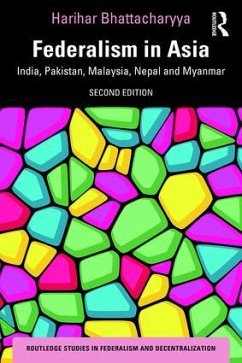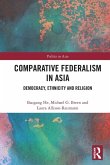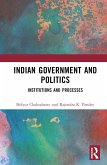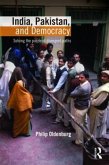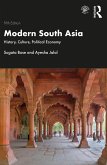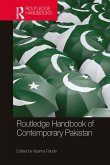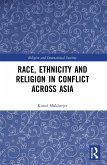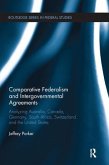This comprehensive book critically analyzes the successes and failures of federalism in India, Pakistan, Malaysia, Nepal and Myanmar for the political accommodation of ethno-regional diversity and assesses their comparative democratic significance for other countries in Asia.
This revised new edition incorporates updated demographic, religious and linguistic data for the case study countries and examines some of the major changes that have taken place in formally federal states since 2010, including the 18th Amendment of the Constitution in Pakistan in 2010, which gave a major turn to decentralization by empowering the provinces; the new federal democratic Constitution that was introduced in Nepal in 2015; and the abolition of the Planning Commission and the National Development Council in India. The author thematically examines the growing tensions between nation and state-building in ethnically plural societies; modes of federation-building in Asia; persistent ethnictensions in federations and the relationship between federalism and democracy; and federalism and decentralization.
The book will be of use to advanced undergraduate and postgraduate students of Asian politics, comparative federalism and modern Asian political history and institutions, as well as policy makers on ethnic conflict regulation and peace studies and stakeholders in ethnic power-sharing and political order.
This revised new edition incorporates updated demographic, religious and linguistic data for the case study countries and examines some of the major changes that have taken place in formally federal states since 2010, including the 18th Amendment of the Constitution in Pakistan in 2010, which gave a major turn to decentralization by empowering the provinces; the new federal democratic Constitution that was introduced in Nepal in 2015; and the abolition of the Planning Commission and the National Development Council in India. The author thematically examines the growing tensions between nation and state-building in ethnically plural societies; modes of federation-building in Asia; persistent ethnictensions in federations and the relationship between federalism and democracy; and federalism and decentralization.
The book will be of use to advanced undergraduate and postgraduate students of Asian politics, comparative federalism and modern Asian political history and institutions, as well as policy makers on ethnic conflict regulation and peace studies and stakeholders in ethnic power-sharing and political order.
"Anyone interested in South & South East Asian federations should start with Professor Bhattacharyya's survey; it addresses the established federations, the emergent Nepalese federation, and the more precarious case of Myanmar." - Brendan O'Leary, University of Pennsylvania, USA
"Federalism as a political institution holds diverse societies together through an adroit conflation of self rule and shared rule, generating governance, political order, and legitimacy. Bhattacharyya applies this core idea critically to five federations of Asia. A hugely enjoyable book that enriches the classic wisdom and takes it forward." - Subrata K Mitra, Heidelberg University, Germany
"Federalism as a political institution holds diverse societies together through an adroit conflation of self rule and shared rule, generating governance, political order, and legitimacy. Bhattacharyya applies this core idea critically to five federations of Asia. A hugely enjoyable book that enriches the classic wisdom and takes it forward." - Subrata K Mitra, Heidelberg University, Germany
"Anyone interested in South & South East Asian federations should start with Professor Bhattacharyya's survey; it addresses the established federations, the emergent Nepalese federation, and the more precarious case of Myanmar." - Brendan O'Leary, University of Pennsylvania, USA
"Federalism as a political institution holds diverse societies together through an adroit conflation of self rule and shared rule, generating governance, political order, and legitimacy. Bhattacharyya applies this core idea critically to five federations of Asia. A hugely enjoyable book that enriches the classic wisdom and takes it forward." - Subrata K Mitra, Heidelberg University, Germany
"Federalism as a political institution holds diverse societies together through an adroit conflation of self rule and shared rule, generating governance, political order, and legitimacy. Bhattacharyya applies this core idea critically to five federations of Asia. A hugely enjoyable book that enriches the classic wisdom and takes it forward." - Subrata K Mitra, Heidelberg University, Germany

